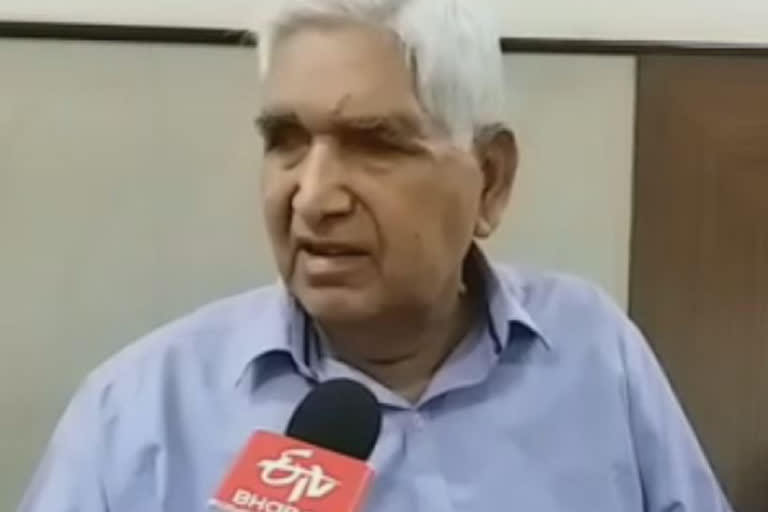Raipur (Chhattisgarh):On the occasion of the 75th Indian Independence Day, the country has been celebrating Azadi Ka Amrit Mahotsav and the Har Ghar Tiranga campaign. Raghunath Pandey, the fourth generation great-grandson of 1857 Sepoy Mutiny hero Mangal Pandey, was in Chhattisgarh's capital Raipur to attend the national-level meet of freedom fighters.
In a heartfelt conversation with ETV Bharat, Raghunath Pandey spoke about India's struggle for Independence, what was the scenario during those days when the country was under British subjugation, what led to the revolt of the Indian soldiers working for the East India Company and atrocities committed by the Britishers on the freedom fighters. Raghunath Pandey also talked at length about what needs to be done for inculcating the spirit of patriotism among the countrymen.
Hero of the 1857 Sepoy Mutiny, Mangal Pandey, was working as a soldier at Barrackpore in the 34th Bengal Native Infantry regiment of the British East India Company. "When freedom fighter Mangal Pandey learnt that the cartridges they were using had been carrying animal fat of cows and pigs and that they had to use their teeth to unlock the bullets before loading them on firearms, Mandal Pandey refused to obey orders of the Britishers and asked other fellow soldiers to follow suit," said Raghunath Pandey.
"Fearing trouble in the British Regiment, Mangal Pandey was arrested on March 29, 1857, and after conducting a summary trial on April 6, 1857, he was sentenced to death. The death sentence against Mangal Pandey was supposed to be executed on April 7, 1857; but the hangman refused to obey the order of the British judge. Hence, another hangman was summoned and he was kept in dark till the last moment about the purpose of his requisition. On April 8, 1857, Mangal Pandey was sent to gallows."
